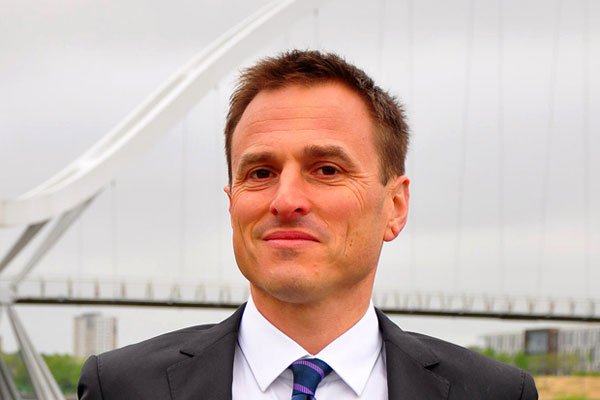Following reports that Stockton South MP Dr Paul Williams (Labour) would lead a debate in the United Kingdom parliament to discuss” as a friend and equal partner” the “things that have been happening in Uganda” in regards to democracy and human rights, Ugandans have taken to social media to express disgust at the pretense by the UK legislator with some Ugandans saying the British have issues of Brexit to deals.
This follows Dr Williams’ interview with NTV two days ago where he said that him, and many people in the UK, are” concerned by Uganda’s democracy.
Apart from some Ugandans advising the UK Parliament to mind their business as Uganda is an independent State, others volunteered information about what the UK legislators needed to know based on facts on the ground.
Nile Wires compiled posts from various individuals who advised the UK politicians to mind their business, the different submissions are separated by a line. read on…
Proposed Strategy for Dr. Paul Williams Presentation on Uganda to Brit House of Commons today 8/01/19:
1) Use #factcheck
2) Arua fracas was as a result of Bobi Wine and his team attacking both Besigye FDC rally and stoning President’s convoy. This is contrary to electoral law. Under Ugandan law like in the UK, an attack on presidential convoy is treasonous.
3) If Uganda is so bad, why is our economy growing at 6.1% this year? Why is the Youth bulge increasingly finding gainful employment from a burgeoning private sector?
4) Governance issues in Uganda r resolved by Ugandans who exercise their right to vote every 5 years in free and fair direct elections. These have been consistently rated highly by the EU, US and UN observer groups since 1996.
5) As a proud member of the EAC, AU and wider global community, Uganda is home to 1m refugees. The UK on the other hand has deployed a Military ship in the English channel to stop migrants escaping dire pilot calls and economic strife in Northern. Africa and Syria.. Streaks Fe caused by UK and US unjustified intervention.
6) From 1969 to early Jan 1971, following Obote’s shift to the East, the British supported Amin’s coup. He would go on to kill 800k Ugandans and grind the economy to a halt. Ugandans with the wise guidance of Nyerere and Museveni were able to Liberate Uganda in July 1979.
etc….
British Government has come under increasing pressure to crack down on corrupt foreign money in London’s property market, facing evidence of huge amounts of money laundering from sources such as the NGO Global Witness and Channel 4’s recent documentary, From Russia with Cash.Indeed, the head of the National Crime Agency has repeatedly stated that London is “a global haven for criminal financial activity.”
It is a common refrain in contemporary politics that those in power no longer have the trust of the ‘the people’. Much of the material source of this distrust can be found in
How Corrupt is Britain?
The breadth of corruption detailed is remarkable and the lack of accountability of the powerful in British society palpable.” Will McMahon, Deputy Director Centre for Crime and Justice Studies
In Britain: Justice Denied: Police Accountability and the Killing of Mark Duggan
By Joanna Gilmore and Waqas Tufail
On 4 August 2011, Mark Duggan, a young black man from Tottenham,North London, was shot dead by a police officer from London’s Metropolitan Police Service (MPS). This killing followed a period of surveillance from MPS officers, eventually resulting in a ‘hard stop’ of the taxi cab Mark Duggan was riding in. Shortly after exiting the taxi cab, Mark Duggan was shot twice and died at the scene. In the immediate aftermath of the killing, which took place in broad daylight on a busy Tottenham street, it was reported by mainstream media institutions that a ‘shootout’ had taken place resulting in a police officer being shot and a man being shot dead.
The source was a spokesperson for the Independent Police Complaints Commission (IPCC). Despite the information being patently false, the image of Mark Duggan as a violent ‘gangster’ soon came to characterise the media framing of the events leading to his death.
In January 2014 an inquest jury delivered their verdict on the legality of the police shooting.
The jury found that contrary to the testimony of the police officer responsible, Mark did not have a gun in his hand at the time he was shot. To the dismay of Mark’s family, the jury nonethe-less found that he had been ‘lawfully killed’.
The writers explore some of the key failures of the police complaints system exposed in the Mark Duggan case, and considers the possibility of radical, community-based alternatives.
Britain “Mired in sleaze”
Then there’s the House of Lords. It has been variously described as “an absurd joke” (Alistair Graham, former head of the Commons’ standards committee), “a relic that can no longer be afforded in a modern democracy” (SNP MP Pete Wishart) and “mired in sleaze” (Labour MP John Mann).
Even a brief recount of recent scandals suggests that these remarks are, if anything, fairly conservative. We have had the revelation that “peers living within walking distance of the chamber are able to claim up to £300 a day just to turn up”, with Baroness Wilcox, a former Conservative minister – “who lives in a £4.5m house a mere 200 yards away from the Palace of Westminster” – receiving £74,400 from these payments over two years. Remarkably, the “peers who have said almost nothing during House of Lords’ debates” and “have received more than £1.6m in allowances and travel expenses during the past five years” are, apparently, not even breaking the rules.




